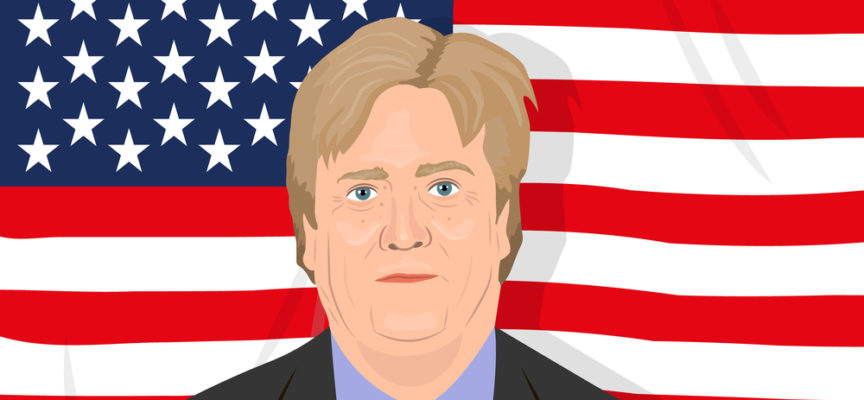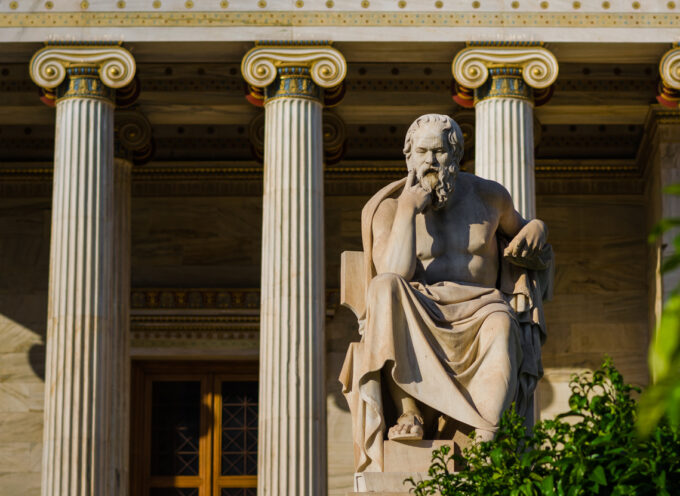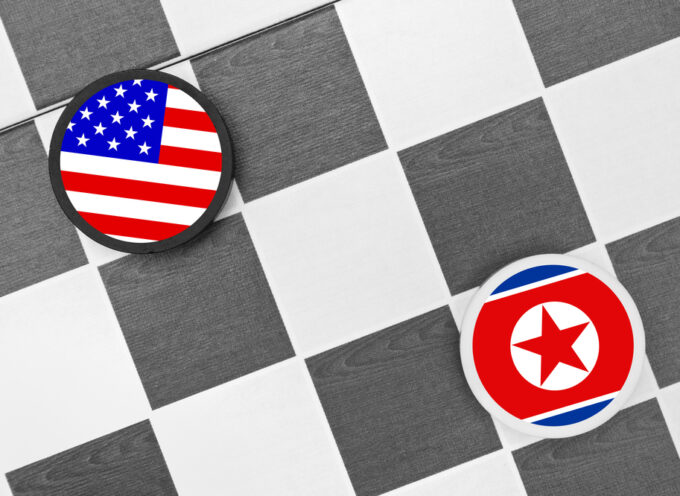Recently, I posted articles examining the rise and development of political liberalism and socialism in the United States, arguing that the former ideology makes an idol out of “individual autonomy” while the latter ideology makes an idol of “material equality.” In this article, we will examine the idolatrous nature of political nationalism.
Before delving into political nationalism, however, we must first define “nation.” What is a nation?
Defining “nation” is more difficult than an American might typically assume. The experts don’t even agree. Various unifying features are trotted out as the key to identifying a true nation—language, culture, race, homeland, or constitutional order. None of these criteria, however, serve universally to make sense of all nations. Thus, for the sake of this post we define a nation as any group of people who claim to be a nation (and have some plausible claim to do so), and who both include and exclude people by their own standards.
This type of definition allows for various “nations” that are not officially a part of the United Nations General Assembly. Westerners may find this difficult to grasp. But there are many nations that transcend the boundaries of contemporary nation-states. The Kurds, for example, scattered across Iraq, Iran, Turkey, and Syria, consider themselves one nation—rather than Iraqi, Iranian, etc. And in our own country, many of the Native American tribes, such as the Cherokee Indians, identify primarily with their Native American tribe rather than their United States affiliation. So modern “nation-states,” such as the United States, are not the only “nations.”
Nationalism, on the other hand, is easier to define. David Koyzis, for instance, offers a theological definition of nationalism as a political arrangement in which the people deify the nation, viewing their nation as the Savior that will protect them from the evil of being ruled by those who are different from them. Sometimes this rhetoric of salvation is overt, as was the case in Nazi Germany and Soviet Russia. At other times, it manifests in more subtle ways. Regardless of how subtle the rhetoric, however, ideological nationalism should be recognized as idolatrous.
Varieties of Nationalism in the West
In the modern West, political nationalism centers on modern nation-states. Nationalists view their nation-state as more than merely the aggregate of its citizens. Usually, the nation is seen as superior to other nation-states in its ability to exemplify some transcendent value. For Americans, this value is usually freedom. Because our nation possesses the highest virtue, the argument goes, our nation must therefore be God’s “favorite.” This sort of thinking goes beyond patriotism (which can be healthy and good) in it’s elevation of the nation-state to a status reserved for God alone.
Our state-based form of nationalism is relatively novel, at least historically speaking. Tribal-based nationalism predominated in earlier eras in Western history, and still does in many parts of the globe today. For these nations, allegiance is given first to a particular ethnic group. This people group shares a common ethnicity, language, culture, and religion, and generally sees its way of life as superior to other ways of life. They may or may not place much pride in their style of government (as in the state-based variety), but the end result of tribal nationalism is similar: our gang is better than your gang.
The Nazis were a hybrid of state and tribal nationalism, with their volk ideology. Undeniably centered in a particular nation-state, the Weimar Republic or German Reich, the Nazis’ privileged “German race” included not only the German people, but also the Scandinavians, the English, and the Dutch. Nazi nationalism was especially pernicious because it made the Nazi community itself the source of value. All manner of evil became possible as a means toward their end of promoting the perfect Germanic race at the expense of other peoples and races.
Varieties of Nationalism in America
As fallen beings, we might find it easy to spot the idolatry in Nazi Germany’s nationalism, given that the nation under consideration is not our own. We pick the speck out of another nation’s eye while ignoring the log in our own. If we’re going to be honest, therefore, we need to identify and speak out against distinctively American varieties of political nationalism. Of the various types of American nationalism, this article will discuss two: white nationalism and God-and-country nationalism.
White Nationalism
As I argue in Letters to an American Christian, one especially odious variety is white nationalism. White nationalists tend to argue that ethnic groupings are the most natural unit of culture, that whites are the most basic unity of American culture, and that white culture possesses certain traits that are uniquely exemplary. They focus on the uniqueness of white culture, call upon whites to preserve it by transmitting it to future generations, and seek a governing structure that will protect the national culture so they can be handed down to future generations. Many white nationalists want to get rid of the Constitution and its Amendments in order to constitutionalize a double standard of justice, one that carves out a special place for whites and for white culture.
White nationalism us unAmerican and, more significantly, unchristian. As an American Christian, I want local, state, and national governments to exercise power with an eye toward justice for all people within our borders, and not merely for people of a particular ethnic, socioeconomic, or religious grouping. “The danger of the ethnic variety of nationalism lies,” Koyzis writes, “in the pursuit of a double standard of justice. When ethnic nationalists come to power in a given state, they privilege the members of the titular ethnic group over those of other ethnic groups.” Evangelicals should thus reject any attempt to value one ethnic group over another.
Racism and racial injustice manifests itself both in individuals and institutions. In individuals, it manifests itself as personal prejudice toward persons of a different ethnic heritage. In institutions, it manifests itself through when social and cultural institutions so that they give preference to one race over another. Of all people, evangelical Christians should understand the reality of both types of racism. Scripture emphasizes that sin is committed by individuals (e.g. Genesis 3) but that individual sins coalesce on the macro-level to warp and corrupts society and culture (e.g. Genesis 4-11). We should fight racism tooth-and-nail, in all its forms, not only from the voting booth but also in our churches and coffee shops and on our Facebook and Twitter accounts.
God and Country Nationalism
Another variety of American nationalism can be found in “God and country” circles. Now, there is nothing wrong with loving God and one’s country. I love God and, at the same time, am deeply and profoundly grateful that I am an American citizen. I even co-authored a book entitled One Nation under God: A Christian Hope for American Politics.
But there is an unhealthy type of “God and country” patriotism that views the United States as a chosen nation in the same way that Israel is described as a chosen nation in the Bible. Even as great of a president as Ronald Reagan misappropriated the phrase “City on a Hill” (which the Puritans and other Christians rightly applied to the church) by applying it to the United States.
Similarly, political candidates and commentators often misappropriate the promise God made to his People in 2 Chronicles 7:14. In this verse, God says to Solomon, “If my people, who are called by my name, will humble themselves, and pray and seek my face, and turn from their wicked ways, then I will hear from heaven, and will forgive their sin and heal their land.” After quoting this verse, many politicians apply it to the United States rather than to God’s people.
Now, it is true that 2 Chronicle 7:14 contains a universal truth. God will, in fact, respond mercifully to all who turn to him with repentance and humility. But those quoting it often go beyond this modest application by viewing the United States is as a chosen people on the same level as biblical Israel. But to do so is to err. The people of God, those “called by [his] name,” are those who gather around the throne of Christ—not those who salute the Red, White, and Blue. And once we lend our identity as “people of god” to the nation state, we relinquish our unique and indispensable role as salt and light in the world.
These sorts of theological mistakes often lead to even greater political mischief. For example, if we view the United States as a chosen nation on the level of biblical Israel, it’s all the more easy to assume “divine backing” for whatever political programs or foreign policy agendas that a particular “God and country” proponent favors. In other words, it gives one nation-state a higher ontological and moral status than all other nation-states, thereby making it easier to justify various injustices or evils as the means toward the end of propping up “God’s” nation.
Conclusion
We Americans are a patriotic people. None of what is said here should make us ashamed to look on our country with affection, devotion, and even a measure of pride. Still, we must prevent our natural and admirable patriotism from becoming an idolatrous type of nationalism. To effectively counter nationalism, we need not love our own nation less; we need only to love, honor, and obey God more.
The United States is, as our Pledge of Allegiance puts it, “one nation, under God.” As Richard John Neuhaus noted, calling ourselves “one nation, under God” is not a statement of patriotic pride, but of patriotic humility. Our nation stands under the watchful eye of God, and we will be held accountable for whether we ascribe ultimacy to Christ or to our nation. “One nation, under God” is also a statement of hope and aspiration. For all of our failings as a country, we still have the opportunity to shape politics through the lens of the gospel. For that, we turn to our final post.
———————————————-
This post is indebted to David Koyzis’ fine critique of nationalism in Political Visions & Illusions: A Survey & Christian Critique of Contemporary Ideologies (Grand Rapids: IVP, 2003), 97-123.
Subscribe
Never miss a post! Have all new posts delivered straight to your inbox.








You are a breath of fresh blessed air.
Thank You
Thank you, Jorge.